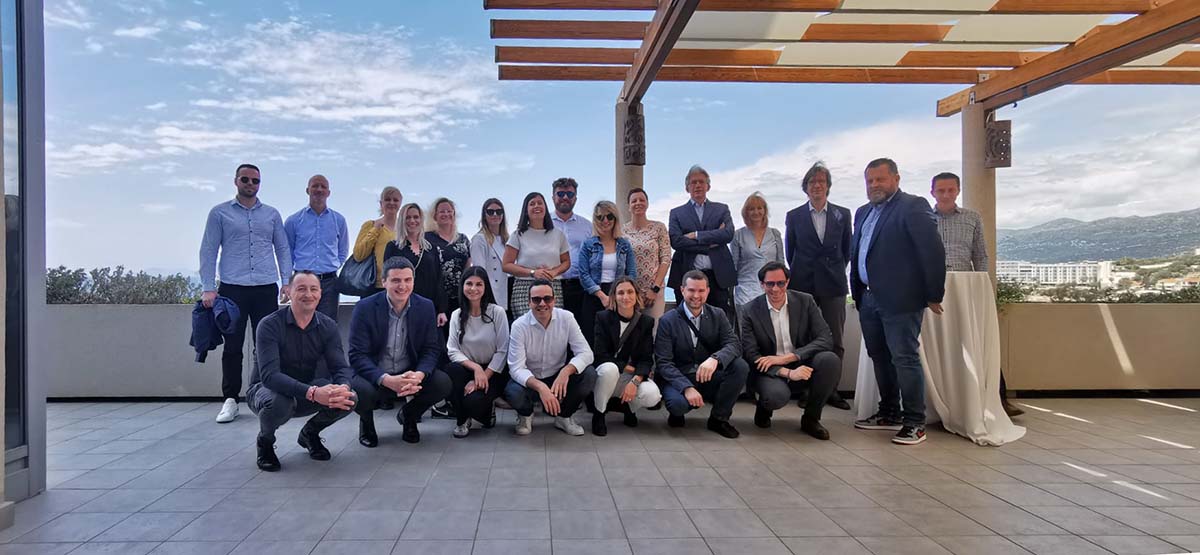On May 14th, the kick-off meeting for the REDU-CE-D project was successfully held in Dubrovnik. This event marked the beginning of a significant collaborative effort under the Interreg Central Europe 2021-2027 program. The project aims to develop a Customized Environmental Management System (EMS) to increase energy efficiency and reduce energy consumption across various transport modes in Central Europe. The meeting was attended by all project partners, including representatives from Dubrovnik Airport Ltd, Budapest Airport, the Municipality of Krakow (Krakow Transport Authority), BKK Centre for Budapest Transport, University of Maribor, Adriafer s.r.l., Ecco-rail GmbH, Freeport of Budapest Logistics Ltd, Port of Ploče, and Romagna Tech. These partners are united in their goal to address the rising energy consumption and greenhouse gas emissions in the transport sector, which remain highly dependent on fossil fuels. The primary objective of the REDU-CE-D project is to align with the Energy Efficiency Directive (EED) by transposing its requirements into different transportation sectors, including air transport, urban transport, waterway transport, and rail transport. The project will achieve this through the development, testing, and dissemination of a customized EMS based on EU requirements and a jointly defined strategy. During the kick-off meeting, participants discussed the overall implementation plan, including Work Packages (WPs), objectives, outputs, activities, and related deliverables. This provided a valuable opportunity for partners to establish working relationships, foster cooperation, and outline future activities. The project will adopt a transnational and cooperative approach to develop a jointly defined strategy for energy transition in the transportation sector within Central Europe. This strategy will be based on the assessment, mapping, and evaluation of best practices for monitoring energy consumption in the transport system. A Transnational Working Group will also evaluate the adaptability of these practices, providing strategic inputs for their implementation and capitalisation. Key results from this research will be presented during the REDU-CE-D Conference. Additionally, the project will implement pilot actions in four different sites to test the effectiveness of the customized EMS support packages. These pilot actions will be conducted in Croatia (air transport), Poland (urban transport), Hungary (waterway transport), and Italy (rail transport). The transferability potential to other Central European regions will be facilitated through the involvement of key stakeholders in the pilot testing visits. A joint evaluation of each pilot action by all project partners will culminate in the validation of the EMS packages during the Transnational Advisory Forum. The adoption and transfer of the EMS support packages will be ensured through training activities, awareness campaigns, lobbying activities, and dedicated transfer roundtables with transportation authorities. The successful kick-off meeting has set the stage for a transformative journey towards increased energy efficiency and reduced energy consumption in Central Europe’s transportation sectors. The REDU-CE-D project is committed to contributing to the implementation of the Energy Efficiency Directive and fostering investments in energy transition, ultimately aiming for a climate-neutral Central Europe. Stay tuned for further updates and progress on the REDU-CE-D project.
Manage Cookie Consent
To provide the best experiences, we use technologies like cookies to store and/or access device information. Consenting to these technologies will allow us to process data such as browsing behavior or unique IDs on this site. Not consenting or withdrawing consent, may adversely affect certain features and functions.
Functional Always active
The technical storage or access is strictly necessary for the legitimate purpose of enabling the use of a specific service explicitly requested by the subscriber or user, or for the sole purpose of carrying out the transmission of a communication over an electronic communications network.
Preferences
The technical storage or access is necessary for the legitimate purpose of storing preferences that are not requested by the subscriber or user.
Statistics
The technical storage or access that is used exclusively for statistical purposes.
The technical storage or access that is used exclusively for anonymous statistical purposes. Without a subpoena, voluntary compliance on the part of your Internet Service Provider, or additional records from a third party, information stored or retrieved for this purpose alone cannot usually be used to identify you.
Marketing
The technical storage or access is required to create user profiles to send advertising, or to track the user on a website or across several websites for similar marketing purposes.
